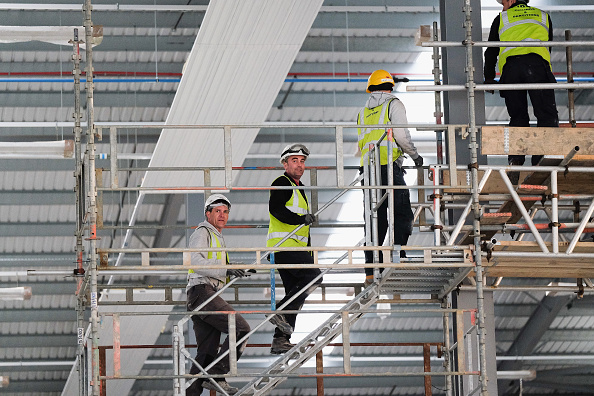UK wage growth hits 11-year high despite shrinking economy

Britons’ wages grew faster than at any time since the financial crisis in the three months to June, official figures showed today, despite the UK economy shrinking over the same period.
Read more: Into the red: UK economy shrinks for first time in seven years
Meanwhile, the number of UK workers without a job rose slightly in the three months to June, although it stayed close to record lows, the Office for National Statistics (ONS) said.
The figures are the latest sign that the UK jobs market remains robust despite an economy stalling under the weight of Brexit and a global slowdown. Official figures last week showed British GDP shrank by 0.2 per cent in the second quarter of the year.
Wage growth reached an annual rate of 3.9 per cent in the second quarter of the year, higher than the 3.6 per cent growth in May. It also beat economists’ expectations of a 3.8 per cent rise.
The rise means real wages – with inflation taken into account – climbed at an annual rate 1.9 per cent in the second quarter excluding bonuses.
Yet unemployment rose slightly to 3.9 per cent of the working age population between April and June, figures from the Office for National Statistics (ONS) showed.
The score was above the 3.8 per cent seen in May and above predictions of the same figure again. It was lower than the four per cent unemployment rate of a year earlier, however.
Work and pensions secretary Amber Rudd said: “Households across the UK are earning a regular income, and millions more receiving a pay boost thanks to wages rising at their fastest in a decade – outstripping inflation for a 17th month in a row.”
“Our workforce increasingly reflects our vibrant society, with a record number of women in employment while the number out of work falls to an all-time low.”
She said young people were “entering a workforce that is flourishing and full of opportunity”.
Vacancies cooling
ONS deputy head of labour market statistics Matt Hughes said that although “employment continues to increase” the “number of vacancies has been falling for six months, with fewer now than there were this time last year”.
“Excluding bonuses, real wages are growing at their fastest in nearly four years, but pay levels still have not returned to their pre-downturn peak.”
The ONS said average regular pay before tax and other deductions was estimated at £469 per week in real terms in June 2019. This was lower than the pre-recession peak of £473 per week.
Tom Stevenson, investment director for personal investing at Fidelity International, said: “The UK’s labour market is still the bright spot in the British economy.”
“Many households will feel they are enjoying a more comfortable standard of living at the moment. More people are in work than at any time since 1971.”
Tej Parikh, chief economist at the Institute of Directors, said the rise in unemployment shows the jobs market “may now be reaching its peak”.
“With investment in machinery and technology often deemed too risky right now, businesses have sought to bring on board more staff to help lift output,” he said. But this has meant “firms have found it harder to fill their openings”.
PwC chief economist John Hawksworth said that “productivity growth remains very weak”, with output per hour down by 0.6 per cent in the second quarter of 2019 compared to a year earlier.
Read more: Sterling spirals to near $1.20 as recession fears grow
“Weak productivity growth reflects subdued corporate investment growth over the past three years as businesses wait for greater clarity on Brexit.”
(Image credit: Getty)